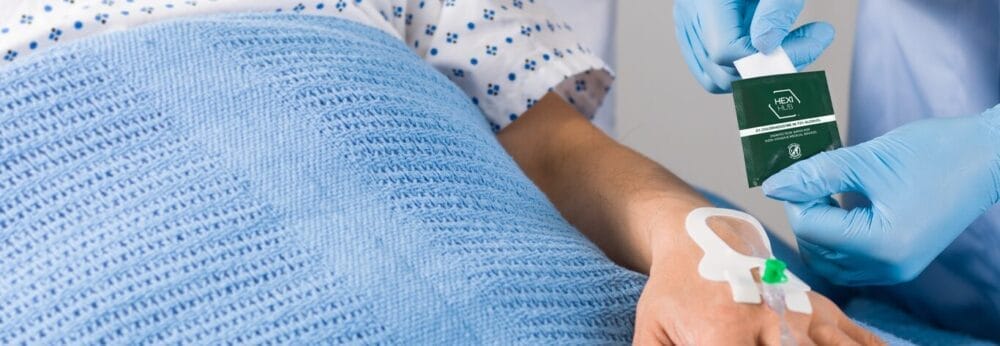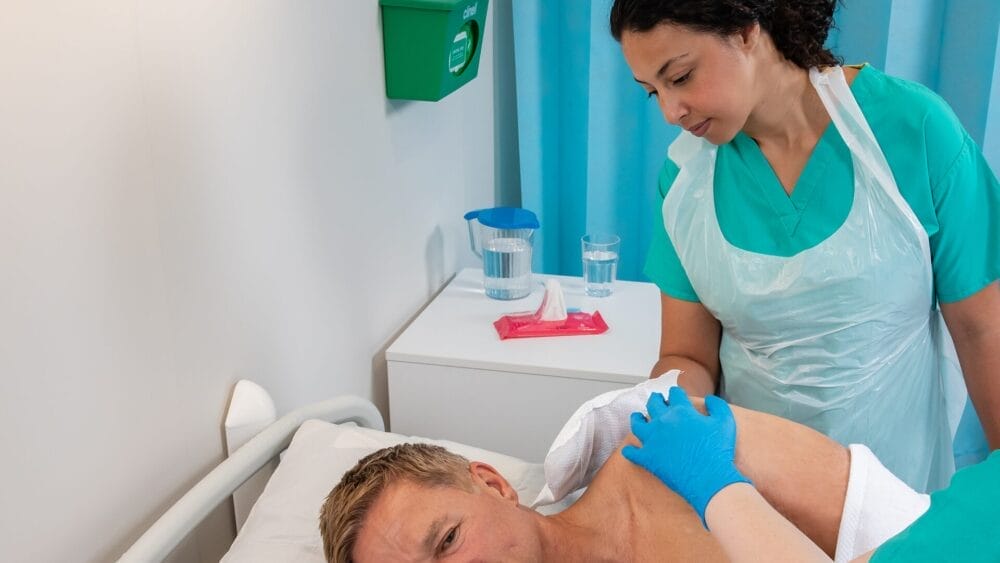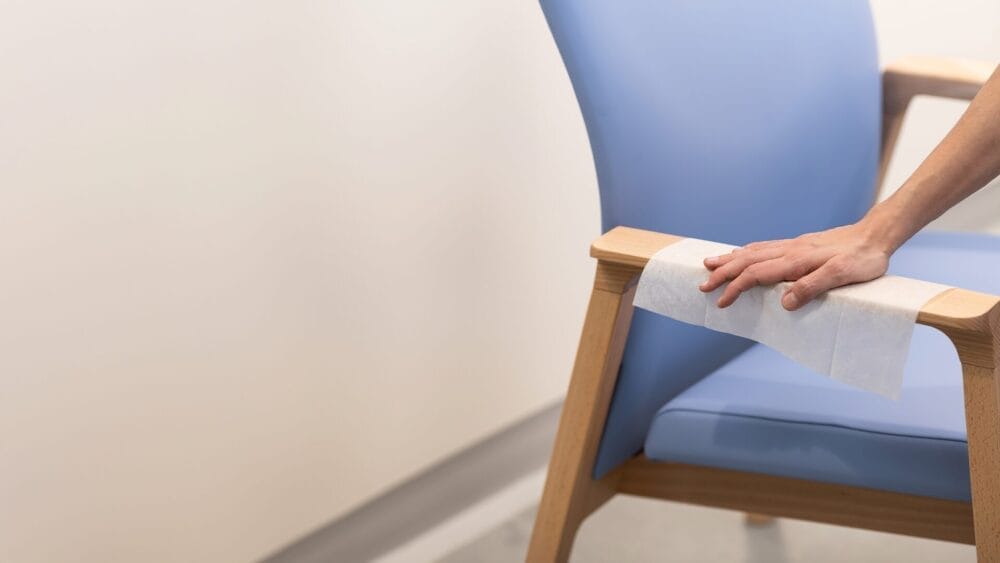Posted
6th March 2020
Research
Our infection prevention experts and scientists answer some of the general public’s biggest questions surrounding the coronavirus (COVID-19) outbreak. With answers from our Clinical and Science & Innovation teams.
[If you’re a healthcare professional, you should follow local, national and international guidance on the matter as appropriate].

Do face masks actually protect you against coronavirus?
This one is contentious.
The World Health Organization, Centres for Disease Control and Public Health England all have different advice for the use of face masks.
At the time of writing, the scientific evidence isn’t strong enough to definitively say that masks will protect you against coronavirus infection (if you’re a member of the general public). They might.
That’s because most respiratory diseases (colds, flu, coronavirus) are spread through droplets released when coughing or sneezing. Generally these droplets are too big and too heavy to travel more than a meter or so. At the time of writing, there’s no evidence to suggest the COVID-19 is truly ‘airborne’.
If you’re a healthcare worker, follow your infection prevention and control guidance!
So why do people wear masks?
Even though those infected droplets don’t travel very far, they can contaminate hands and surfaces.
One of the most common ways healthy people become infected is by touching a contaminated surface and then touching their eyes, nose or mouth. That’s why people wear face masks.
In this case, it’s less about what the mask itself does. It’s more the prompt that stops you physically touching your nose and mouth. But that means that hand hygiene is still vitally important.
Alternatively, if you’re unkowlingly carrying the virus, wearing a mask might reduce the risk of you spreading it out into the environment or onto other people when you can’t maintain a 2 meter distance.
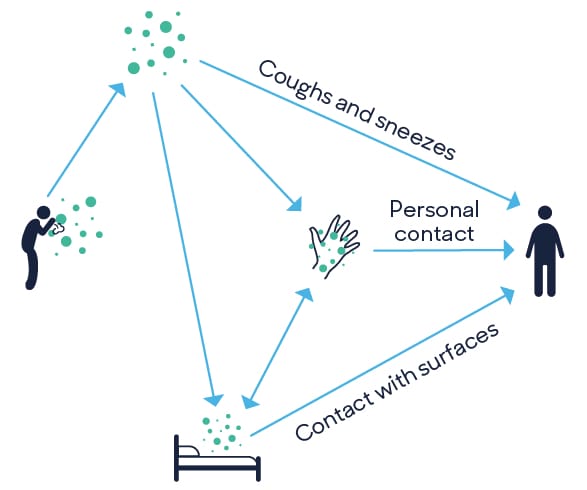
‘What should I do?’
If you’re a member of the public and you’re wearing a mask, don’t let it lull you into a false sense of security. Keep your hands clean and follow the government’s advice. Don’t reuse disposable masks, you’re more likely to contaminate your hands by touching a dirty mask!
If you’re a healthcare professional, follow local, national or international guidance.

Can dogs or cats catch coronavirus?
No your pets can’t catch coronavirus. There’s an interesting reason why that one dog tested positive.
When an infected person coughs or sneezes, they release droplets full of the virus. Coronavirus from those droplets can survive on surfaces for days.
Especially if the surface is in a humid environment.
The coronavirus they found on that dog was from the inside of its nose and mouth. A lovely humid surface for the virus to survive on.
That doesn’t mean the dog had contracted the disease. Just that the virus was surviving on them just as they would any inanimate object. The virus wasn’t ‘in‘ the dog, it was ‘on‘ the dog.
Does that mean we need to quarantine our pets? No, probably not.
At the moment, there’s no evidence to suggest that your pets are at risk of contracting the disease.
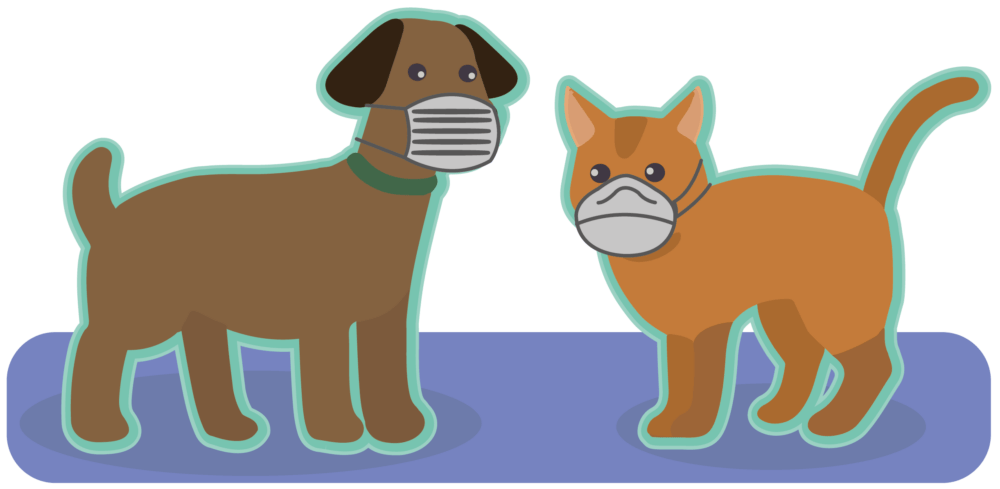
‘What should I do?’
Take care of your furry/feathery/scaly friends. Just make sure you wash or sanitise your hands after touching them!

Is there a cure for coronavirus?
Unfortunately, there’s no specific cure for coronavirus. COVID-19 is from the same family of viruses that cause some of the common colds we get every year.
Just like with the common cold, at the minute, all we can do is treat the symptoms with supportive therapy. That means managing the symptoms (in this case fever, cough and shortness of breath) as best we can.
Antibiotics don’t work against coronavirus. Antibiotics are only effective when the organism causing the disease is a bacteria.
‘COVID-19’ is a disease caused by a virus called ‘SARS-CoV-2.’ Antibiotics don’t work against viruses.
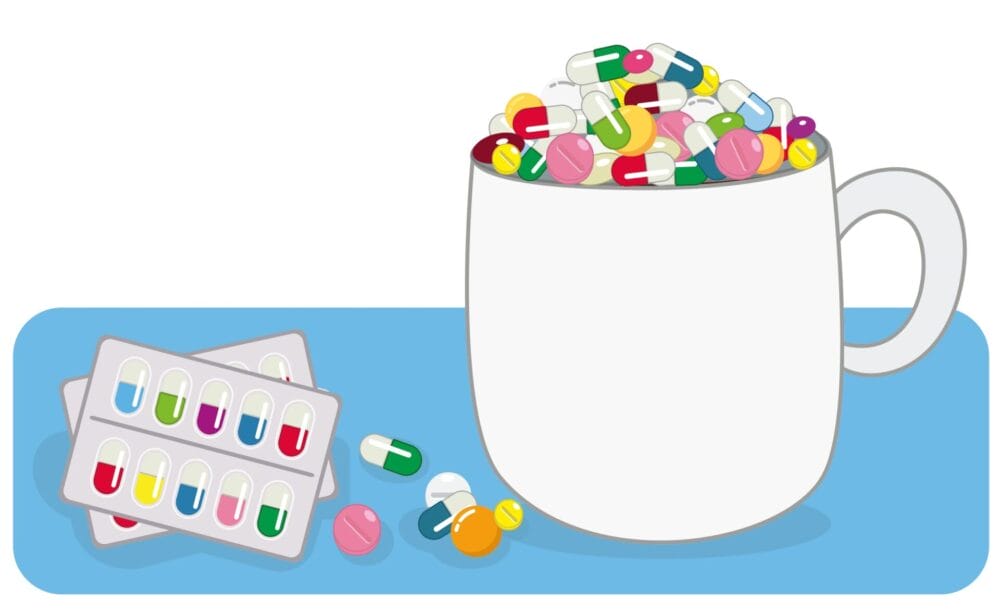
‘What should I do?’
Don’t take antibiotics as a treatment for coronavirus. However, if you’re prescribed antibiotics for something else, make sure you complete the full course!

Is there a vaccine for coronavirus?
At the moment, there’s no vaccine against COVID-19. But it’s being worked on by teams around the world.
So when will we actually have a vaccine?
Anthony Fauci, director of the National Institute of Allergy and Infectious Diseases in the USA told senators it could take between a year and 18 months.
That sounds like a long time, especially with the number of cases consistently increasing. However, it’s really important that any vaccine is proven safe.
The last thing anyone wants to do is accidentally produce an untested, unsafe vaccine that could potentially cause more problems than it solves.
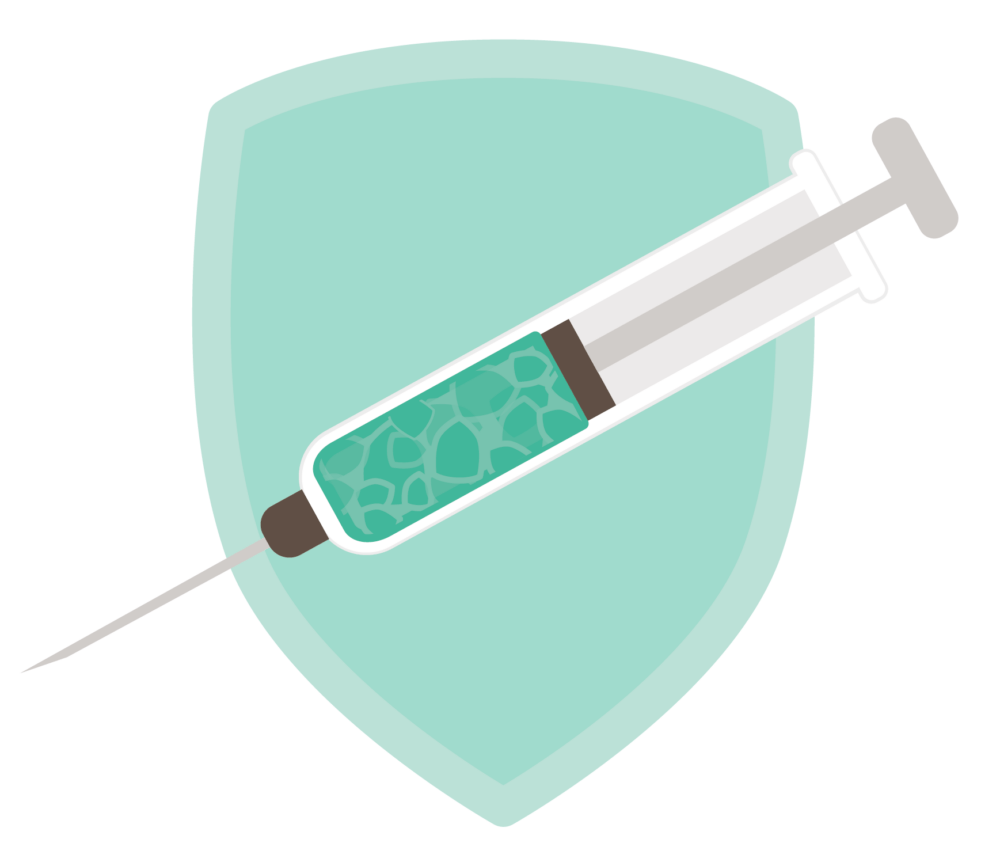
‘What should I do?’
In the meantime, it’s safer for us all to follow the best practice guidance for infection prevention and control.
That includes keeping hands clean, regularly disinfecting surfaces and avoiding contact with anyone who’s unwell.
To find out more, check out our coronavirus information flyer below.
SHARE THIS ARTICLE
Tags
Latest News
Embracing sustainability and cost savings: The journey of Clinell Indicator Notes to paper-based solutions
At GAMA Healthcare, we’ve always prided ourselves on being at…
Introducing HEXI HUB: A seamless transition in our product line
We’re pleased to announce an update to our product offering…
Innovative solutions for tackling Carbapenemase-producing Enterobacteriaceae (CPE) at King’s College Hospitals
King’s College Hospital NHS Foundation Trust, one of London’s largest…
Gloves Off: reducing unnecessary plastic waste during environmental cleaning and disinfection
In this blog, Dr Phil Norville discusses the momentum-gaining ‘Gloves…

